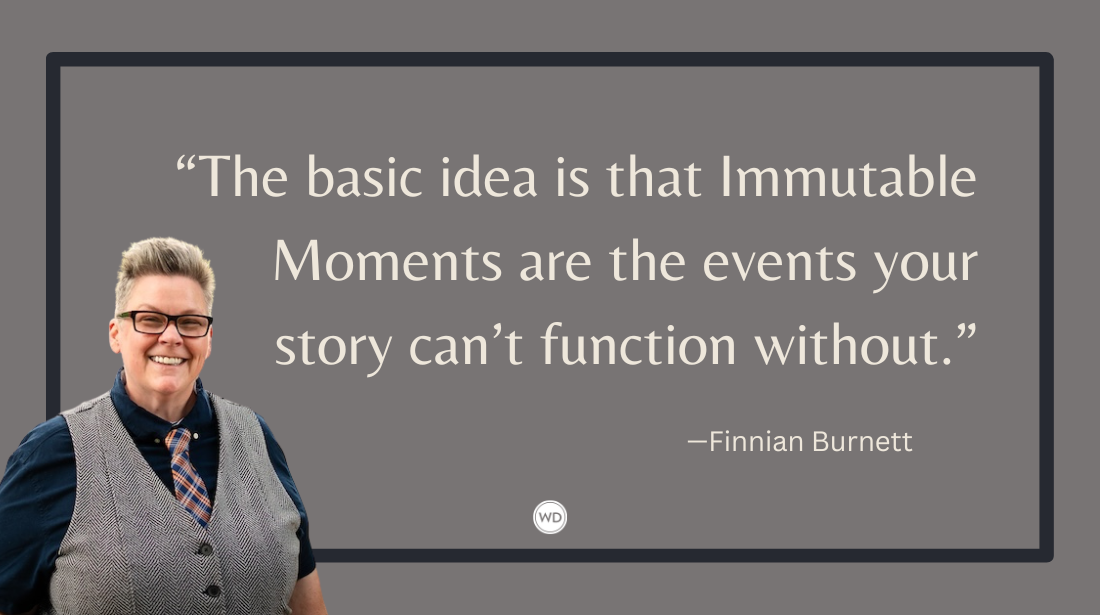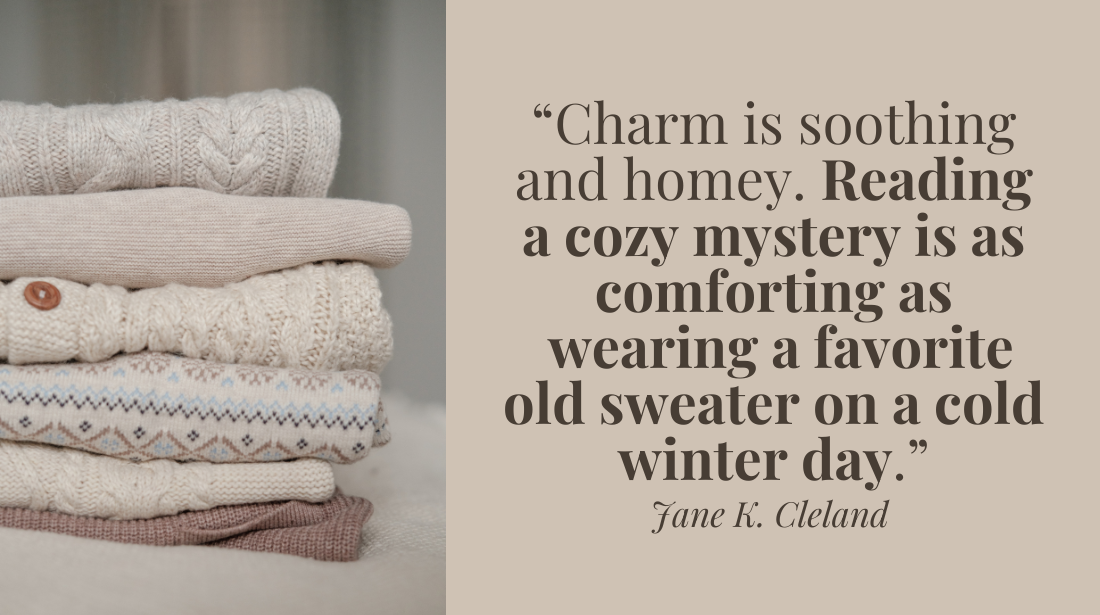5 Things To Keep in Mind When Writing Fiction With Paranormal Elements
From considering setting to respecting magical systems, author Veronica G. Henry shares fives things to keep in mind when writing fiction with paranormal elements.
There is a quote by Mark Twain that has always stuck with me. It goes something like this: All ideas are second-hand, consciously and unconsciously drawn from a million outside sources. Well said, no? From the first piece of fiction I wrote, a short story about a single-cell organism, to my latest novel, The Foreign Exchange, all of my story ideas have been formed this way.
Snatches of conversations. Things I’ve read or watched or observed that somehow resonated. A story shared by an old friend. Commiserations over a myriad of family gatherings. And a million other things. It should come as no surprise then, that I got the idea for the Mambo Reina series from a visit to New Orleans. The cultural richness of the city proved fertile ground for the setting, and renowned Voodoo Priestess Marie Lavaeux provided an interesting angle to explore in order to help craft a compelling protagonist.
Once I decided on that perspective, a Haitian-American Vodou (Voodoo speaks more to the New Orleans tradition) priestess, everything about the plot, the setting, and even the time period, fell into place. I’m as much a reader as I am a writer. Literary, genre, nonfiction–all have equal footing on my bookshelf. But I knew this story would be speculative and that it would be combined with a mystery at its heart. And I wanted to tell a story that would educate as well as entertain.
What is Speculative Fiction?
To understand paranormal fiction is to begin with a look at what I’ll call its parent genre. And that leads us to the question: What is speculative fiction?
There are as many definitions as there are opinions why each of them is too limiting. In my mind, speculative literature is intrinsically tied to questions psychological, technological, and sociological. Delving into the realm of past, current, and future possibilities and asking, what if?
In my Mambo Reina series, that question was: What if a Vodou priestess were tasked with solving a murder?
What is Paranormal Fiction?
Speculative fiction encompasses several subgenres: sci-fi, fantasy, horror, and of course, paranormal. But it doesn’t end there. Paranormal has its own subgenres, including romance and urban fantasy. The Quarter Storm and The Foreign Exchange straddle the fence between them all.
Take a moment to look around you. Think about the world as it exists today. The species that populate the planet. What we know about science and technology and perhaps their current limitations. Then spin all that on its ear.
Genres and subgenres aside, there are some things an author must consider when writing in the paranormal space. There are certain conventions that the reader expects and it’s our job to ensure we’re ticking those boxes. In my case with The Foreign Exchange, I had to ensure that I met the expectations of fairly disparate audiences: paranormal and mystery readers.
1. Do Your Research
Just because you are creating a world very different than the real one doesn’t mean that you don’t have to do your research. This is arguably one of the most important and the most fun parts of the writing process, so don’t skimp here.
The Mambo Reina series features a practitioner of a real-world tradition, so that’s where my research began. The Internet is only a starting point. Fiction and nonfiction books on the topic can provide key insights. Newspaper and journal articles are also treasure troves of information.
And lastly, if possible, it always helps to talk to experts in the field. Expert interviews have traditionally helped me fill in the gaps left unfilled by other research methods.
2. Consider Paranormal Settings
One of the first things you’ll need to decide is where your story will take place. Earth or space? A fictional city or a slightly alternate real one? And in each of these scenarios, what elements from the current, known world will be incorporated into the narrative?
In my case, the process went something like this:
- Where? Earth > America > New Orleans, Louisiana
- When? A decade after Hurricane Katrina to support a plot point surrounding a person missing following the storm.
- Real or imagined? A New Orleans that took a slightly different turn in terms of rebuilding, and in a world that accepts magic as a very real, very valid part of life.
My advice is to read widely. See how other authors have used setting in their stories. Think The Ballad of Perilous Graves, by Alex Jennings, LA Banks’ Vampire Huntress series, or the Sookie Stackhouse series by Charlaine Harris.
3. Respect Your Magic System
In paranormal fiction, and indeed any fiction that includes speculative elements, there is one, unbreakable rule. Once you establish your magic system, or your rules, you’ve made a contract with the reader. It is the author’s job to keep up our end of that very important bargain. So, once you establish the rules, stick to them
4. Develop Your Characters and Plot
There’s a school of thought that suggests that your protagonist must be likable. I’m more of a mind that your main character, as well as your supporting cast, should be compelling in some way.
If they wield a certain kind of magic, are they exceptionally good at it or so bad that you’re willing to go on the learning journey with them. What are their quirks? What aspects of their abilities will provide the basis for conflict and growth?
And when building out your plot, take care that your character’s abilities support them on the journey, but aren’t used as a tool to easily get them out of every precarious situation.
5. Write and Rewrite
Writing is challenging. There’s no way around that. Especially when you are building a world and characters so very different than what exists today. Early on, I made the mistake of trying to make everything perfect on my first draft. And all this served to do was slow me down.
Later, I learned that getting that first draft down, without editing myself was the best approach. The real magic, no pun intended, happens later. You’ll edit your novel so many times, you’ll barely recognize that first draft when you’re done.
Something really rewarding happens during those multiple rounds of editing. My characters revealed quirks in their personalities that I didn’t know existed. I found and corrected plot holes the size of a small country. And I was able to hone both my paranormal setting and character abilities.
I’m excited to see the many new and exciting novels that continue to appear in this space. These are just a few things to keep in mind during your writing process. My advice: Spend the time up-front to build out your world.
Even if you’re not a fan of outlines, you can make use of spreadsheets or even mind mapping tools to help organize your thoughts. Having this roadmap will go a long way toward making that first draft a solid foundation to build upon in future drafts. Don’t forget to read widely, and above all, enjoy the ride.
Veronica G. Henry is the author of Bacchanal and, in the Mambo Reina series, The Quarter Storm and The Foreign Exchange. Her work has debuted at #1 on multiple Amazon bestseller charts and was chosen as an editors’ pick for Best African American Fantasy. She is a Viable Paradise alum and a member of SFWA and the MWA. Her stories have appeared, or are forthcoming, in the Magazine of Fantasy & Science Fiction and FIYAH literary magazine. For more information, visit veronicahenry.net.








